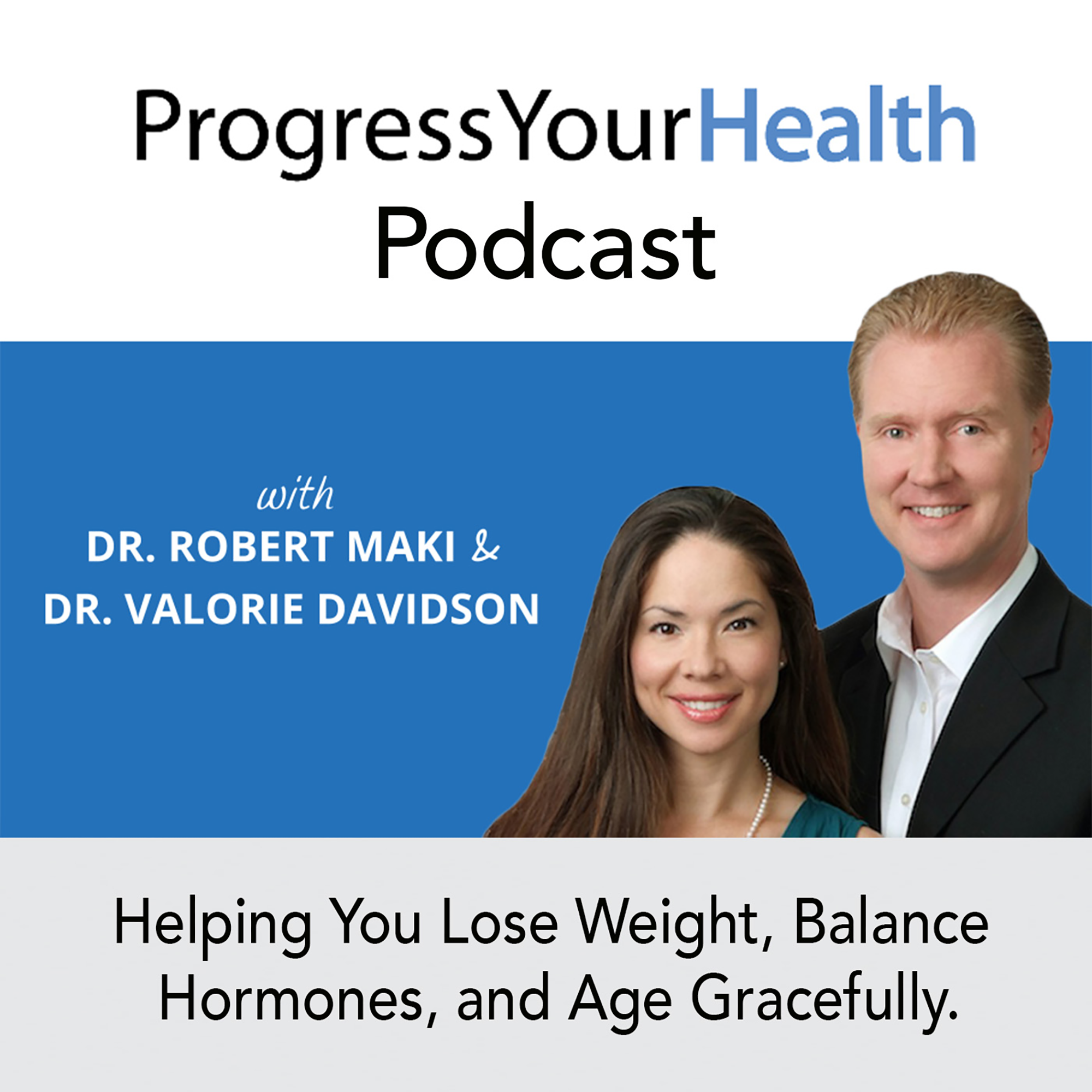Is Surgical Menopause Worse Than Natural Menopause? | PYHP 121
Description
Michelle’s Question: Hi, thank you so much for sharing your knowledge with us!
In March 2022 at 42 years old, I had a total hysterectomy with bilateral salpingo-oophorectomy because of stage 4 endometriosis, grapefruit-sized fibroids, ovarian cysts, and my left ovary adhered to my colon.
I was immediately put on an estradiol patch. I was recovering and doing well until the beginning of June. Then I started having hot flashes, 24/7 anxiety, insomnia, and not feeling well every day.
Since March, my dosage has gone from .25, .5, .75, and 1 mg. But I saw no improvement in my symptoms and have said this was the worse summer of my life.
I am debilitated by it. After much research, I decided to try bio-identical creams that have estriol, estradiol, progesterone, pregnenolone, and DHEA.
Even though I no longer have a uterus, I know that my body is used to having these hormones and am hoping they help me get through this surgical menopause and be able to function again. Is this a combo hormone protocol you've ever done for your patients?
If so, should I apply estriol and estradiol in the morning, and progesterone, pregnenolone, and DHEA at night?
Short Answer:
Surgical menopause is much different from what you could call your typical menopause. Honestly, there is nothing typical about menopause. Some women breeze through menopause and others have symptoms so severe it can seriously affect their quality of life, not to mention the people around them. And I (Dr. Davidson) can say this honestly, being just shy of 50 and feeling the effects of menopause. But being that I am a hormone doctor, I have some advantages to easing my transition. This is why we do what we do, here at Progress Your Health Inc. We know that hormone imbalance can alter how you feel. From your energy to your sleep, to your libido (or lack of) and more. Hormones can even affect your actual overall health.
Menopause is when the ovaries naturally start to decline and then cease producing hormones. Those hormones in particular are estrogen (estradiol) and progesterone. Menopause is a natural part of life. Those ovaries have worked well for a long time and are ready to retire, naturally so. Making that transi
More Episodes
In this episode, we discuss a question from Janice, a podcast listener’s question regarding the benefits of estrogen therapy for heart health. There is much evidence to show that estrogen has cardiovascular protective benefits. We wanted to discuss how estrogen benefits heart health and can help...
Published 05/03/24
Published 05/03/24
In this episode, we talk about the benefits of estrogen on bones. A listener’s question (Alison) inspired this episode. Alison asked if taking vaginal biest has the same heart and bone effects that other estrogens and estrogen therapies have. So, we wanted to expand on estrogen’s role in helping...
Published 05/02/24


